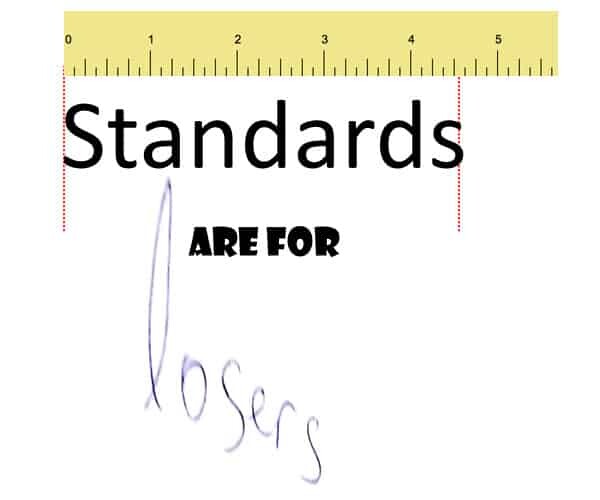They really truly are.

Whenever someone whines to me that WebRTC isn’t a standard yet so it isn’t ready it makes me laugh. Who the hell cares about such a thing anymore?
The standard is whoever’s got the clout and strength in the market. Ask any marketer – would they want to be able to interact with the carrier’s standardized, federated (and almost non-existent) RCS client to send a message – or would they rather be able to interact with WhatsApp users. The answer, for countries where WhatsApp is popular will be WhatsApp. Marketers don’t care about the standard. The users don’t care about the standard. And most developers don’t care either – as long as the interface is adequately documented.
Enter WebRTC.
No. The IETF hasn’t gone through the motions and finalized the spec yet.
Yes. It might change.
No. I couldn’t care less.
You see, there are already billions of users available to me via WebRTC. There’s source code I can take, compile and run anywhere I want. There’s a vibrant ecosystem of developers and vendors ready to assist. There’s a large and growing number of companies and use cases that make use of WebRTC.
Who am I to say that WebRTC doesn’t exist because someone didn’t put their “standard” stamp on it?
For the last 3 years I’ve been using WebRTC almost daily to communicate with others using various services. I didn’t think for once that this isn’t working because there’s no standard.
Whenever companies band together to create a standard, I begin to question their motive. These days, it usually comes from a point of weakness – a place where there is one (or more) vendors who are strong in a domain and the only way the smaller kids can have a go at it is by specifying a standard to rally all small players to fight the dominant force.
Whenever you see a standard being announced – ask who isn’t there – that’s the one with the power.
In the case of codecs, the MPEG-LA asserts its power and dominance over H.264 and H.265/HEVC for video codecs. Which is why the aomedia was created and announced – to find an alternative codec and win the market back.
The examples are countless.
In the domain of real time communications, everyone were using H.323 or SIP. Then Skype came out, ignoring standards altogether. The industry tried its best to explain that Skype isn’t federated. There’s no standard there. To no avail. So companies (the same ones) tried connecting to Skype, to offer that as part of their service.
The same is happening today with WhatsApp and other social networks. They are so big, that they are the standard.
WebRTC is making the same distinction. It is taking away the hegemony on VoIP from VoIP vendors and putting the weight of this industry on the browser vendors. And now, these vendors are complaining that WebRTC isn’t interoperable. Doesn’t fit their needs. They don’t understand that they are neither in control here nor influencers. They lost control over that part of technology.
This isn’t to say that WebRTC won’t stabilize or get standardized – it is just that it doesn’t matter when it comes to adoption.
Standards? They are for the losers to run after to make sure they get to play the game. The winners don’t really need them.

nice article!!